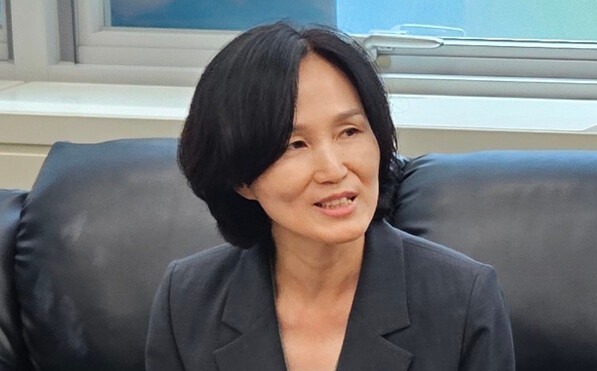The Ministry of Food and Drug Safety (MFDS) is completely revamping the method to disclose the results of its regular GMP (Good Manufacturing Practice) inspections of pharmaceutical manufacturing facilities.
It will eliminate the previous practice of disclosing results with large portions redacted, as requested by pharmaceutical companies. From now on, all results will be disclosed in principle, while recognizing, on a limited basis, only legitimate reasons for non-disclosure by companies.
“This measure aims to resolve controversies over the lack of transparency and fairness in disclosure standards and to guarantee the public's right to know,” said Moon Eun-hee, director of the Pharmaceutical Management Division, explaining the intent of this improvement plan during a media briefing on Tuesday. “It is also intended to enable the industry to voluntarily enhance its quality capabilities by referencing other companies' findings and improvement cases.”

Until now, it has been customary to notify companies of GMP inspection results via reports prepared by inspectors, then withhold specific sections upon corporate request.
Criticism has persistently been raised that even for similar findings, the level of disclosure varied significantly.
The MFDS will adopt the principle of disclosing all information from the report preparation, excluding only sections constituting business or trade secrets.
Even if a company requests non-disclosure, the MFDS will review the submitted reasons and grounds for validity before deciding whether to disclose. Procedures have also been formalized to require consultation with headquarters for matters difficult for regional MFDS offices to judge.
“Vague concerns alone cannot constitute grounds for non-disclosure,” Moon said. “Regulatory compliance status is unrelated to a company's core know-how and therefore cannot be subject to non-disclosure.”
First, the ministry will adjust the scope of disclosure regarding the personal information of inspectors. Previously, the investigator's affiliation and full name were disclosed. However, this led to adverse effects where companies analyzed specific investigators' inspection tendencies to prepare in advance. Going forward, only the institution name and department will be disclosed, but the investigator's name will be excluded.
The method of disclosing inspection targets will also change.
Instead of the previous “product name,” disclosure will now be standardized at the “dosage form (finished pharmaceutical product)” and “manufacturing method" levels of active pharmaceutical ingredient (API), aligning with the disclosure level of GMP compliance certificates. For example, finished pharmaceutical products will be labeled as “Solid Dosage Forms/Liquid Dosage Forms,” while APIs will be labeled as “Synthetic/Fermentation/Extraction.”
Findings will be classified into three levels — “Serious,” “Important,” and “Others” — with a focus on reducing confusion caused by differences in documentation standards among inspectors. The policy clearly distinguishes whether a violation warrants an “administrative action” procedure or requires only “supplemental measures,” based on the severity of the violation.
Additionally, the items recorded in the results report will be strengthened. It will explicitly state that serious and important findings trigger administrative action procedures, while other findings may result in a compliance determination if the validity of the supplemental plan is acknowledged. Furthermore, the completion status of corrective actions and the approval status of implementation plans will be included in the final report to enhance the accuracy and reliability of the information.
“The World Health Organization's (WHO) World Listed Authorities (WLA) evaluation also places significant importance on whether regulatory authorities disclose their inspection results,” Moon said. “This change is necessary to enhance international credibility.”
The U.S. Food and Drug Administration (FDA) and the European Medicines Agency (EMA) also transparently disclose inspection results for reference by the industry and the public, she explained.
The new disclosure standards will apply to GMP compliance certificates issued after Sept. 1. However, actual disclosure is expected to occur several months later, following the preparation of the report, solicitation of company opinions, and completion of internal review procedures.
The industry showed mixed reactions of welcome and concern.
Some pharmaceutical companies expressed unease about the expanded disclosure, arguing that “inspection results are trade secrets.”
However, court precedents maintain the position that “while broadly recognizing the scope of business secrets, the legitimate interest for non-disclosure must be strictly judged,” suggesting that mere assertions alone will likely be insufficient to justify non-disclosure, industry watchers said.

